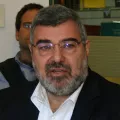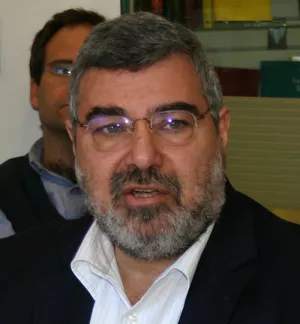
BOSTON — The U.S. Central Intelligence Agency’s leaks to several American news organizations this weekend that it believes with “high confidence” that Saudi Arabian Crown Prince Mohammad Bin Salman ordered the killing of journalist Jamal Khashoggi has triggered a series of fascinating political contests and confrontations that may profoundly impact several decision-decision-making spheres in Washington, within Saudi Arabia, and between the United States and foreign countries. We enter uncharted terrain here with potentially tumultuous results, largely because of the unprecedented, unpredictable, and mostly uninformed, uncaring, and dangerous nature of the Trump presidency and the rule of Mohammad Bin Salman.
Never in modern history has the effective ruler of the Arab region’s biggest power and the president of the world’s most powerful country both been publicly challenged by the CIA, which essentially calls them both liars, and the crown prince a murderer. So we now witness several important, often unprecedented, confrontations that will play themselves out in the coming weeks or months, due to the CIA’s “high confidence” conclusion, the serial incompetence of the Saudis in covering up the assassination they organized and executed, and President Donald Trump’s apparent desire to protect the Saudi crown prince from responsibility.
Several critical contestations underway include at least the following, with others that might appear soon:
1. The CIA vs. the United States president. We saw a few weeks ago the initial signs of this tension when the CIA director flew to Turkey to examine for herself the evidence of the Turkish government and others that seemed to tie the Saudi government, in the form of the Crown Prince’s office, with the death squad killing of Khashoggi. The CIA’s “high confidence” in the assessment is important because it indicates that the agency has its own sources of first-hand evidence. So we can be quite certain that the crown prince was involved in the killing.
The CIA leaking its assessment to major U.S. media is an unusual challenge to the president and his authority to conduct foreign policy — not the direct conduct of foreign policy itself, but the creation of a public opinion environment around how the U.S. should handle the accusations and evidence against the Saudi leader.
2. The U.S. Congress vs. the U.S. president. Some senators in the Congress had already started to initiate legislation on arms sales to Bahrain and military assistance to Saudi Arabia, due to those countries internal human rights gross misconduct or their involvement in the war in Yemen. Some congresspeople have started publicly agreeing with the CIA, while demanding that the Saudis find a way to replace their crown prince with someone more responsible and less erratic and dangerous, in the worlds of some senior senators. So we will now witness a dramatic contest to see who really makes foreign policy — as the CIA, the president, and the Congress all publicly lay out their positions on how to respond to the culpability of the Saudi crown prince.
3. President Trump vs. the Republican Party. President Trump has largely been able to maintain the Republicans in Congress on his side. This is changing suddenly with the CIA assessment, as some Republican leaders, like Senator Lindsay Graham of South Carolina, openly say they will refuse to deal with the Saudi crown prince, at a time when the president repeatedly says the Saudis are important allies and major sources of income for the U.S., and that the evidence against the crown prince is not clear yet.
4. The U.S. vs. its major Western allies. The major European allies have all made public statements that reject the Trump position and demand a thorough investigation of the Khashoggi murder. If Trump rejects the CIA verdict and growing congressional opposition to his position, and continues to shield Saudis who seem to be complicit in the murder, we may see a novel situation where the U.S., Saudi Arabia, and Israel are isolated from the rest of the world (the Israelis are in this trio of rogues because their prime minister asked Trump to take it easy on the crown prince because of the importance of the Saudis to Israeli interests).
It will take some time — months, I estimate — before these contests play themselves out and the final official American position on the murder is defined, and it becomes clear if the crown prince stays as he is now, gets his wings clipped, or is quietly removed by a decision of the king and the royal family council that was established by the late King Abdullah to determine the royal succession.
The matter grows bigger by the day, and will not quietly go away, no matter how much Trump, or his son-in-law and friend of the crown prince Jared Kushner, would like that to happen. This is because of three factors:
a) the barbaric nature of the planned killing, body dismemberment, and dissolution in acid is so extreme that it cannot be overlooked as just another routine crime by another violent Middle Eastern government;
b) the repeated lying and succession of ridiculous stories the Saudi government provided to cover up the crime reveal it to be both hapless amateurs as well as cold-blooded killers; and,
c) this is the opening that gave the world, especially officials and media in the U.S., the opening they needed to truthfully assess and politically push back against the destructive track record of the crown prince in domestic, regional, and international affairs, and to speak out against it.
Rami G. Khouri is senior public policy fellow, adjunct professor of journalism, and Journalist in Residence at the American University of Beirut, and a non-resident senior fellow at the Harvard Kennedy School’s Middle East Initiative. He can be followed @ramikhouri
Copyright ©2018 Rami G. Khouri — distributed by Agence Global
Khouri, Rami. “CIA leaks spark new era in Khashoggi case.” Agence Global, November 19, 2018



